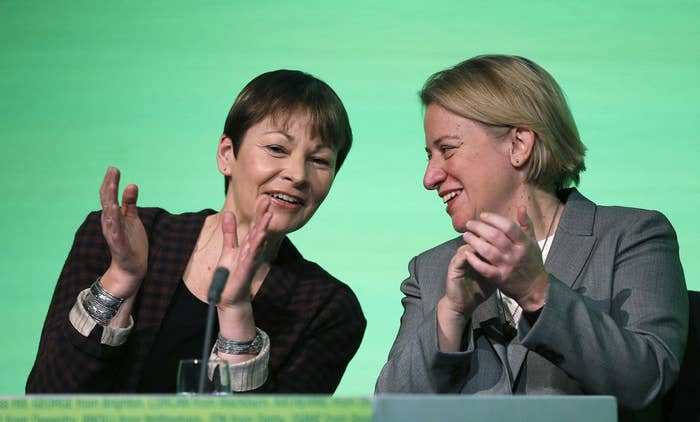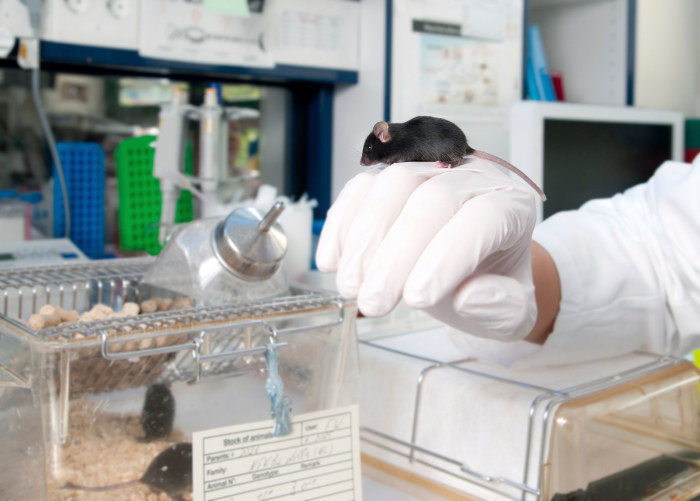
The Green party's leader and its only MP both signed a pledge that would ban most animal medical research in Britain, thinking it was referring to tests on "household products".
As well as Natalie Bennett and Caroline Lucas, the Vote Cruelty Free pledge was signed by energy and climate-change secretary Ed Davey and at least 19 other MPs.
The pledge was organised by the British Union for the Abolition of Vivisection (BUAV), an anti-animal-testing pressure group. It is calling on candidates for parliamentary seats to endorse six set policy commitments.
The promises are: 1) Ban experiments on cats and dogs, 2) end the secrecy surrounding animal experiments, 3) stop importing monkeys for use in laboratories, 4) end non-medical experiments, 5) stop genetically modifying animals, and 6) stop suffering in the most extreme experiments.
The fourth pledge, according to the Vote Cruelty Free website, would end all medical tests that do not relate to the trial of a specific drug to tackle a human disease. The pledge states: "In 2013 more than 4 million animals suffered in experiments. Yet only 13% of these were to test new medicines for humans. As a first step, the government must stop any animal experiment which does not claim to directly benefit human health."
But scientists have expressed concern that the pledge would hamper future medical process.
The 13% figure refers to tests of specific drugs intended for human use. But that would mean an end to more basic medical research into the progression of disease.
Tom Holder, a spokesperson for Speaking of Research, a group which defends animal research, said that the pledge as written would imply a ban on 88.6% of all existing animal tests, including all basic research. He claimed that "banning basic research is akin to asking a child to solve a difficult crossword without first teaching them to read".
Nick Palmer, the policy director for BUAV, told BuzzFeed News that the pledge could be softened accordingly. "I think that researchers would claim that there were other types of research that directly benefited humans," he said, claiming that it should be up to the Home Office to determine what that research was. He added that the pledge would certainly apply to all veterinary research.
Holder said that even with this looser definition, the pledge would mean a ban on at least 64.6% of all animal research in Britain.

A Green party spokesperson told BuzzFeed News that Lucas and Bennett had signed the pledge thinking the "non-medical" section referred to "household products".
"Natalie and Caroline did sign up on the basis that it was about testing things like household products," she said. "The Greens have a strong policy on animal testing, looking at alternatives and tightening regulations, but we are aware that you can't just click your fingers."
In fact, no household products have been tested on animals in Britain since 2011, and the government plans to make such testing illegal later this year.
The scientific community has reacted with alarm to the prospect of a major change to the law governing animal testing.
"Without the use of animals in basic biomedical research, many of the advances of modern medicine would not have been possible," Nancy Lee, a senior policy adviser at the Wellcome Trust, told BuzzFeed News.
"For example, the discovery of place cells – the brain cells that provide us with a cognitive map of our environment – would not have been possible without being able to study these cells in rodents. Now, several years after John O'Keefe's original discovery, for which he has recently won a Nobel prize, it is widely recognised that this system of place cells is affected in those with dementia and Alzheimer's disease."
Philip Wright, the CEO of the Physiological Society, said: "If we were to stop fundamental research using animals, we would effectively halt our ability to develop new treatments for the next Ebola outbreak, cancer, and dementia. Animal research remains essential to our ability to understand the biological mechanisms that control how the body works."
According to Holder, a total of 164 parliamentary candidates, including 21 MPs, have signed the pledge.

